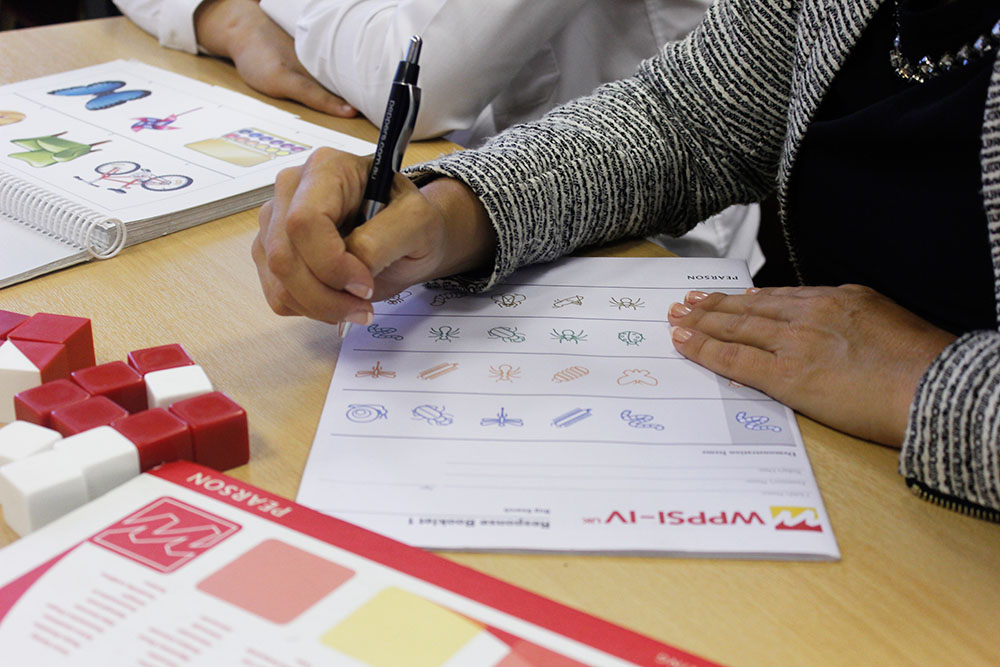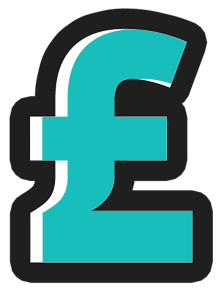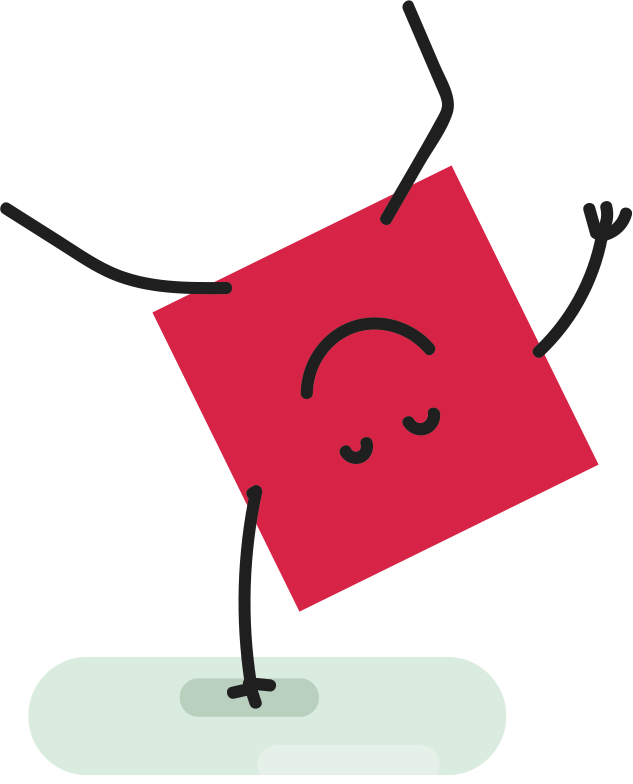

Cognitive assessments are suitable for children and young people between ages 4 and 25 years old, although they can be used for younger children in certain circumstances. An individual does not need to have high language abilities to receive a cognitive assessment. Individuals who experience any of the following could benefit from a cognitive assessment:
If you would like to find out how a cognitive assessment could benefit you or people around you then please contact us to find out more.

Dr Julie Alfrey carrying out a cognitive assessment on a child
Cognitive assessments bring many benefits, including:
Following a cognitive assessment there will be some recommendations for supporting the individual’s learning environment.
A cognitive assessment can be carried out following an initial discussion, please see our process below.
A cognitive assessment takes place within a school, home, community setting or within our clinic. The assessment would need to be in a quiet room free from distractions. Ideal conditions for a cognitive assessment would be in a place the child or young person knows well and feels relaxed in so they are able to be calm and focused. There are variations between each cognitive assessment, but they all measure a multitude of abilities through puzzles, activities and questions. Cognitive assessments can be long, so usually a break will take place.
The specific cognitive assessment(s) used will be chosen based on the individual. The main cognitive assessments we use are:
There are other cognitive assessments and ways to assess cognitive abilities and these will be discussed before the assessment takes place.
After a cognitive assessment we will have a comprehensive idea of a child or young person’s needs and how to reach their true potential. Following a cognitive assessment it may be suggested that we carry out further assessment, an intervention or recommendations. Results from a cognitive assessment will be provided through a feedback session, or a written report if needed. We will support you through the whole process of an assessment which is why we offer the option to receive follow up support.
Reasons for requesting a cognitive assessment vary, and if a written report is not needed then feedback will be provided verbally along with a brief summary. A comprehensive report is available after a cognitive assessment highlighting areas of strength and need. A report from a cognitive assessment can be used for many reasons, such as: personal use, medical use, school use, support with an application, funding and support, or evidence for a different reason. Read more about our reports.
Arrange an initial discussion to find out how we can benefit your education setting. The initial discussion lasts 2 hours and is a starting point to identify needs. The cost is £300.
only
£300


Once again thank you for all your help and for actually listening to me when others wouldn’t.

Jodie (Parent)
Thank you Julie once again for the excellent report, it captured the child’s needs entirely - SENDIASS, parents and me commented on how well written it was. Many thanks for your continued assistance.

SENCO
Sarah Ward was brilliant with us. Really happy with the help and support, would recommend.

Joanne (Parent)
I think the work you have been doing has been great to help break the stigma of mental health and as a fellow sufferer I know how important that is.

Mental health professional
Many thanks for Sarah W’s hard work with our students which has been very well received.

Deputy Head
Really enjoyed it and learnt lots that I can take back to school. Thank you for the quality experience.

Sarah Tindal
Thank you Julie once again for the excellent report, it captured the child’s needs entirely - SENDIASS, parents and me commented on how well written it was. Many thanks for your continued assistance.

SENCO

We provide bespoke solutions to suit all budgets and requirements for children and young people aged 0-25 in homes, education settings and the community. Our clinical, educational and child psychology services are cost effective.
To make a referral and arrange an initial discussion please complete our referral form.

Ready to get started? The next step is to speak to our team to find out more about the services we provide and how we can help. Call us on 0161 820 9229 or email office@hsrpsychology.co.uk